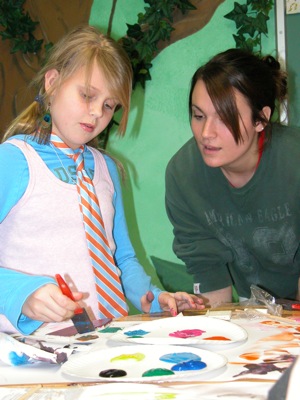Friday, January 12th, 2007
Teacher thinks science classes should remain specialized
By William Kincaid
COLDWATER - A teacher spoke out this week against a state initiative that encourages the simultaneous instruction of several science disciplines at each grade level.
High school biology teacher Randy Wright told board members during the regular meeting that the state is pushing for "integrated science" in order to prepare students for the Ohio Graduation Test (OGT), which is taken during their sophomore year.
Currently at Coldwater Exempted Village Schools, most high school college-prep students take science courses in a sequential order. For example, a student could take earth science the first year, biology the second year, chemistry the third year and physics the fourth year.
But under the state's recommendation, according to Wright, that same student would take integrated science - portions of all four subjects taught simultaneously each year.
"Some of the things they (politicians and Ohio Department of Education) require don't make a lot of sense to me," Wright told board members, before pointing out what may seem applicable in Columbus doesn't always correlate to Coldwater.
Wright said the intention of an integrated science curriculum is to help teachers ensure their students are learning state-mandated concepts known as benchmarks. An example of one physical science benchmark for juniors and seniors is explaining how variations in the arrangements and motion of atoms and molecules form the basis of a variety of biological, chemical and physical phenomena.
"It's almost ridiculous to expect us (science teachers) to do it," Wright said about teaching all the state benchmarks.
And the OGT test, according to Wright, assumes that the sophomores who are taking it are knowledgeable in all subjects.
But even though Coldwater students learn each subject by grade year and would not even take chemistry until their third year - a whole year after taking the OGT test - Wright said they receive excellent results every year.
"I would put our seniors up against anyone," Wright said about Coldwater students and their comprehension of science.
How can a sophmore do well on a test when he or she hasn't even taken chemistry or physics?
"The reason they do so well is they're taught well in the lower grades," Wright told the newspaper. "Because the family unit is still together. They're better educated. They take it more seriously. They have good teachers and good parents."
One of Wright's primary objections to integrated science is the requirement of instructors teaching subjects outside of their specialization. For example, Wright said he could only teach the basics of chemistry, as he went to college to become a biology teacher.
"We're not all licensed to do that," Wright said about some of the new teachers and the contemporary certification requirements now needed to teach various subjects.
Wright said the department has instructors who are positioned to teach in the subjects they excel at.
Also, Wright mentioned that because of both limited finances and teachers, its difficult to teach all of the state standards The state, he said, mandates such instruction, "yet they never back it up with any funds."
"Basically we all have the same problems," Wright said about the high school science teachers.


